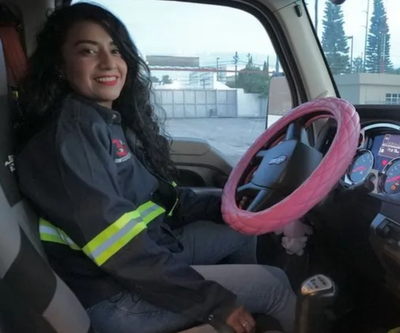In the United States, the credit system plays a crucial role in financial life, providing access to loans for homes, cars, and more. However, this aspect of the American dream poses significant challenges for the Latino community. They often face higher interest rates than their white counterparts, and after dedicating much of their adult lives to work, many Latinos reach the age of fifty with some form of debt, requiring them to allocate approximately half of their income to the payment of these financial obligations.
Latinos Face Financial Obstacles in Homeownership
In the last quarter of 2023, in New York specifically, New York Attorney General Letitia James presented a revealing report highlighting significant racial disparities faced by the Latino and Black communities when seeking to acquire homes or access financing in the state. This concerning reality extends throughout the state, with Albany, the capital, ranking as the second city with the widest gap in homeownership between whites and blacks nationwide. White households are 25 percent more likely than Asian households to own their homes and more than twice as likely as Black or Latino households.
“Owning a home is an essential part of achieving the American dream and building wealth to pass on to future generations,” said Attorney General James.
The report highlights that applicants of color face higher denial rates compared to white applicants, regardless of factors such as credit score, income, and loan size. Even among those with the highest credit scores, non-white applicants face denial rates nearly double that of white applicants. Additionally, non-white buyers are more likely to encounter higher interest rates, use costly loans from the Federal Housing Administration, and are less likely to secure refinancing at lower rates. In total, these additional burdens amount to over $200 million in interest and other costs for Black and Latino communities.
Credit Challenges: The Persistent Hurdles for Latino Communities
“Unfortunately, unequal access to affordable credit is still pervasive across our state, reinforcing the legacy of segregation, leading to a disparity in homeownership, and fueling the racial wealth gap. This report makes it clear that our state must do more to provide better resources for homebuyers and strengthen housing laws to help empower more New Yorkers. My office remains committed to fighting housing discrimination in all forms, and I look forward to working with my partners in government to address this problem.” said Attorney General James.
The report suggests several state-level policy solutions, including subsidizing down payments and interest rates for first-generation homebuyers, increasing state funding for non-profit financial institutions supporting underserved communities, passing the New York Public Banking Act to establish a regulatory framework for local public banks, and allocating more resources for fair lending investigations.
The credit issue is neither new nor exclusive to the state of New York. A survey conducted in September 2022 by the Latino advocacy and civil rights organization UnidosUS, targeting 1,200 Latinos in the states of Arizona, California, and Texas, revealed that 50 percent of respondents lacked sufficient savings for home purchases, 39 percent indicated that interest rates were too high, and 34 percent reported having too low credit scores.
Debt and Retirement: A Complex Intersection for Latinos
In the October 2023 report published by The American Association of Retired Persons (AARP), it is emphasized that three out of four adults aged 50 and older face some form of debt. Among the nearly 7,400 surveyed seniors, 61 percent indicated that their debt levels are a cause for concern. Those who categorize their debt as a significant problem allocate an average of 53 percent of their monthly income to debt repayment, while those who do not view their debt as a problem spend only 27 percent of their monthly income on this purpose.
The national sample included 7,387 adults aged 50 and older, with the participation of 1,597 African American/Black adults and 1,642 Hispanic adults. The survey revealed that debts pose more challenges for women compared to men, representing a significantly greater burden for African American and Hispanic adults compared to non-Hispanic white adults. The lack of savings for emergencies leads many Latinos to resort to credit to cope with medical emergencies, creating financial gaps. Credit cards emerge as the most prevalent form of debt, affecting 59% of indebted older adults.
The issue is exacerbated by misinformation and a lack of resources, as a concerning 69 percent of respondents have not sought information to manage their debt strategically. Instead, they opt for empirically cutting expenses, significantly slowing down the process of debt repayment. However, free tools like AARP Money MapTM exist to teach budget planning, expense tracking, and establishing debt payment plans.
Financial Empowerment Stories: Latinas Making a Difference
MissBeHelpful
Yanely Espinal stands out as a first-generation Latina and the first in her family to earn a college degree. In 2011, after completing her studies with a full scholarship at Brown University, Yanely found herself facing a $20,000 debt. Raised in Bushwick as the daughter of Dominican immigrants, she lacked financial knowledge. Faced with this challenge, she immersed herself in reading books, blogs, and podcasts, and began sharing her insights through her YouTube channel, MissBeHelpful.
Currently, Yanely has launched her own book, "Mind Your Money: Insightful Stories and Strategies to Help You Reach Your #MoneyGoals." This book intertwines the personal narratives of the first-generation Latina, a college graduate in a family of nine siblings, providing readers with insights into financial jargon, banking fundamentals, and practical steps to improve their financial situation.
Para Yanely, la clave del cambio está en la educación, por lo que promueve la idea de implementar simulacros que permitan a los jóvenes en las escuelas aprender y poner a prueba los conocimientos adquiridos a través de la educación financiera personal. La participación activa de la joven Latina ha sido crucial para el éxito de leyes de educación financiera en varios estados, incluyendo Connecticut, Florida, Georgia, Indiana, Michigan, Rhode Island, Carolina del Sur y Virginia Occidental.
Debt-Free Latina ™️
Mayra Alejandra García is another Latina who has undergone a remarkable transformation, transitioning from facing significant debt to becoming a finance expert. Born and raised in East Los Angeles, CA, and currently residing in Laveen, a suburb of Phoenix, AZ, Mayra has been sharing her knowledge with families on how to eliminate their debts since 2017.
In 2010, her family had a total debt of $21,000. After implementing a financial strategy, her family managed to pay off their debts within 17 months. They sold their house and moved to a small apartment, where they implemented additional strategies that would enable them to purchase their current home with a 20% down payment and a 15-year loan. Living debt-free allowed them to increase their net worth and make independent decisions. Since 2017, Mayra has received training as a counselor in Dave Ramsey's teachings and has become a certified Financial Coach.
If you wish to learn more about the financial world, we invite you to read our article '5 Latina Instagram Accounts That Teach You About Your Finances.' At BoldLatina, we recognize the importance of efficiently managing finances and want to provide key tools for increasing net worth and generating income intelligently, especially for Latinas who often lack these resources.
____________________
Si deseas conocer más sobre el mundo financiero te invitamos a leer nuestro artículo 5 Latina Instagram Accounts That Teach You About Your Finances. En BoldLatina, reconocemos la importancia de manejar eficientemente las finanzas y queremos brindar herramientas clave para el aumento del patrimonio neto y la generación de ingresos de manera inteligente, especialmente para aquellas Latinas que a menudo carecen de estas herramientas.






